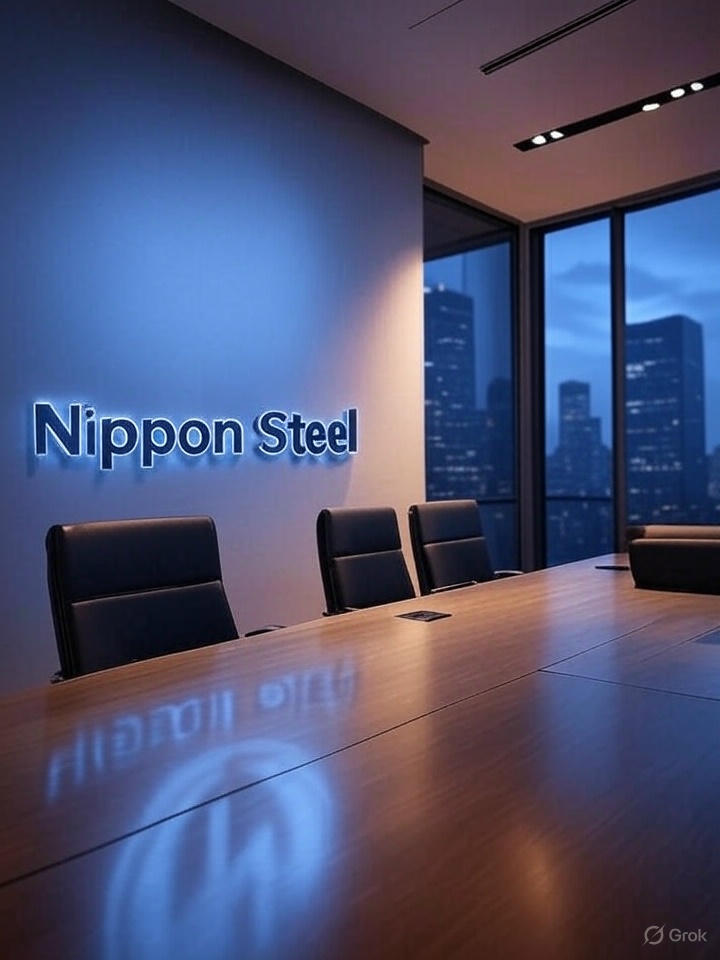A Japanese steel giant now owns U.S. Steel thanks to President Donald Trump. Nippon Steel’s $14.9-billion acquisition of U.S. Steel closed on Wednesday, the companies said, confirming an unusual degree of power for President Trump after the Japanese company’s 18-month struggle to close the purchase.
White House spokesman Kush Desai called the deal historic and said the golden share would “safeguard America’s national and economic security.”
Eiji Hashimoto, Nippon Steel’s chairman and CEO, said that “Nippon Steel is excited about opening a new chapter of the U.S. Steel’s storied history.” Hashimoto also thanked Trump for his role.
READ: Nippon Steel proposes $7 billion investment to revive U.S. Steel merger (March 28, 2025)
The deal however, has a key element that may work in Trump’s favour. The creation of a golden share held by the U.S. government. Championed by Trump, this golden share grants the federal government veto power over major corporate decisions, such as moving jobs or closing plants, and allows for the appointment of a board member. The provision was seen as a strategic move to protect American industrial interests and national security while allowing the foreign acquisition to proceed under strict oversight.
Though the Biden administration initially opposed the takeover, Trump’s backing—conditional on the golden share—gave the deal political momentum. Supporters hailed it as a new tool for safeguarding critical industries, but legal and business analysts warned it could deter future foreign investment by signaling a new era of government intervention in private markets. The U.S. Steel golden share is the first of its kind used in a healthy, non-defense firm, setting a precedent with wide-reaching implications for foreign ownership and economic nationalism in America.
“The optics of a golden share – they suggest that it’s a little bit harder to divorce pure national security analysis from political decision-making,” said Josh Gruenspecht, a national security lawyer at Wilson Sonsini.
The press release announcing the deal notes the golden share gives the U.S. government rights, including, “The right to appoint one independent director; and Consent rights of the President of the United States, or his designee, on specific matters.”
The United Steelworkers union, which has vehemently opposed the deal, said it would “continue watching, holding Nippon to its commitments,” adding that the golden share gives Trump a “startling degree of personal power over a corporation.”
This deal reflects a shift toward stronger government oversight of foreign investments in critical sectors, aiming to protect national security and American jobs. For the U.S., it signals a willingness to balance openness to global capital with safeguarding strategic industries, potentially reshaping future foreign acquisitions.
READ: Donald Trump to control US Steel now owned by Japanese Nippon? (June 16, 2025)
For Trump, the golden share serves as a symbolic and practical win, reinforcing his “America First” agenda by ensuring continued influence over key manufacturing assets even under foreign ownership. However, while it may strengthen domestic protections, the move could also raise concerns among international investors about increased regulatory barriers.
The deal highlights the evolving landscape of U.S. economic nationalism, where government intervention plays a larger role in securing national interests in an interconnected global economy. Ultimately, the golden share sets a powerful precedent for how the U.S. might navigate the complex balance between attracting foreign investment and maintaining control over critical industries in the future.


AloJapan.com